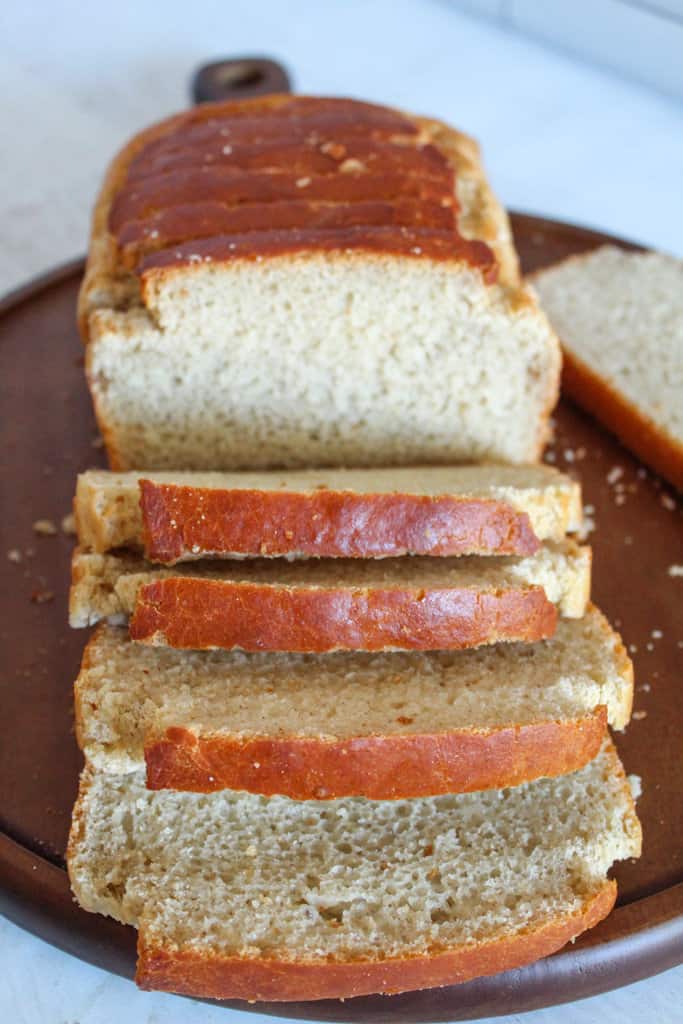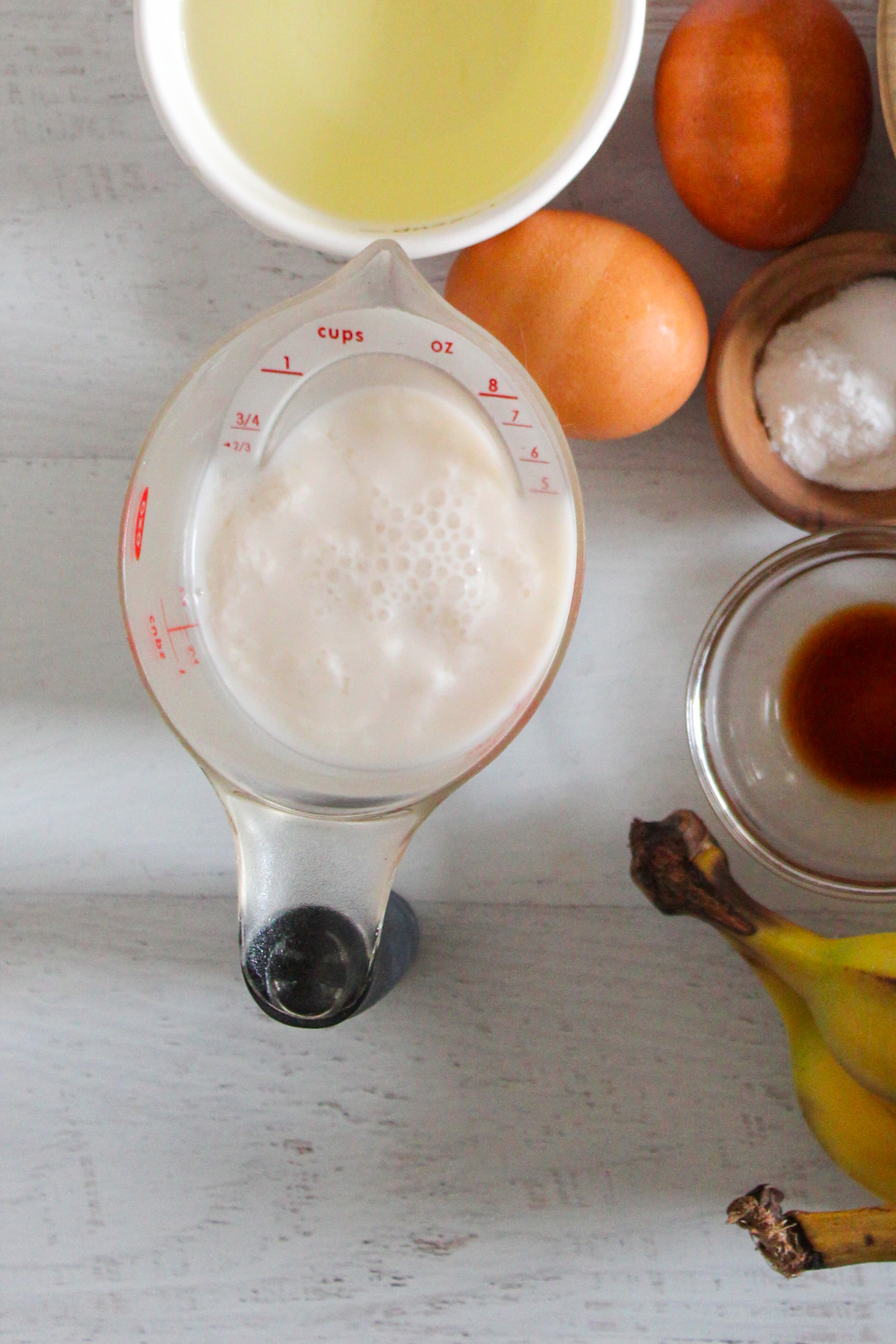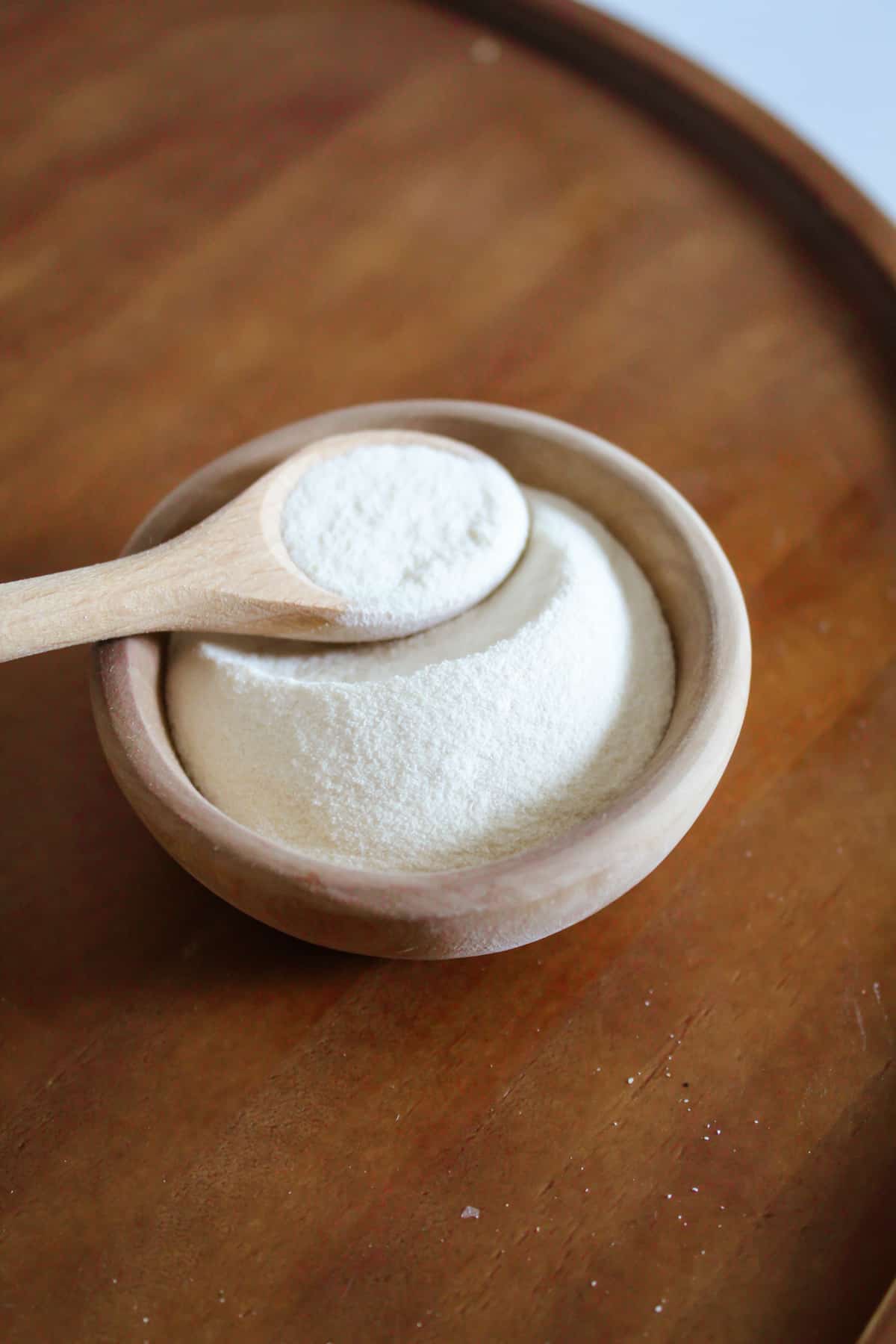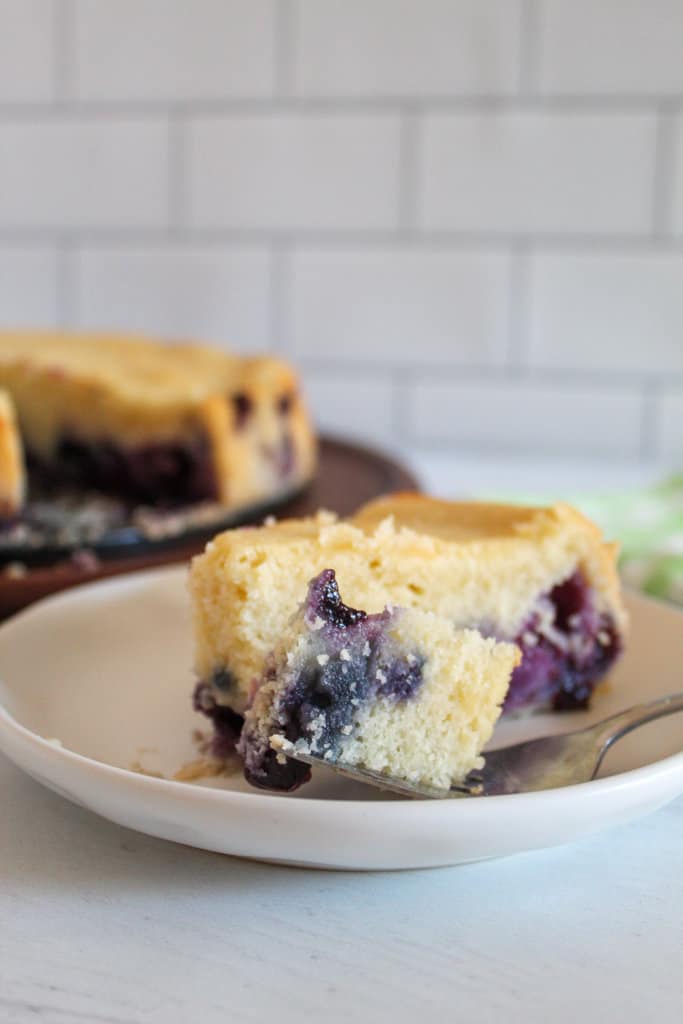Best 10 Coconut Flour Substitutes
Coconut flour is a very common ingredient in a lot of gluten free recipes, but what happens if you run out or you can’t use it? Let’s help you find the best coconut flour substitutes with these gluten free flours, starches, and more!
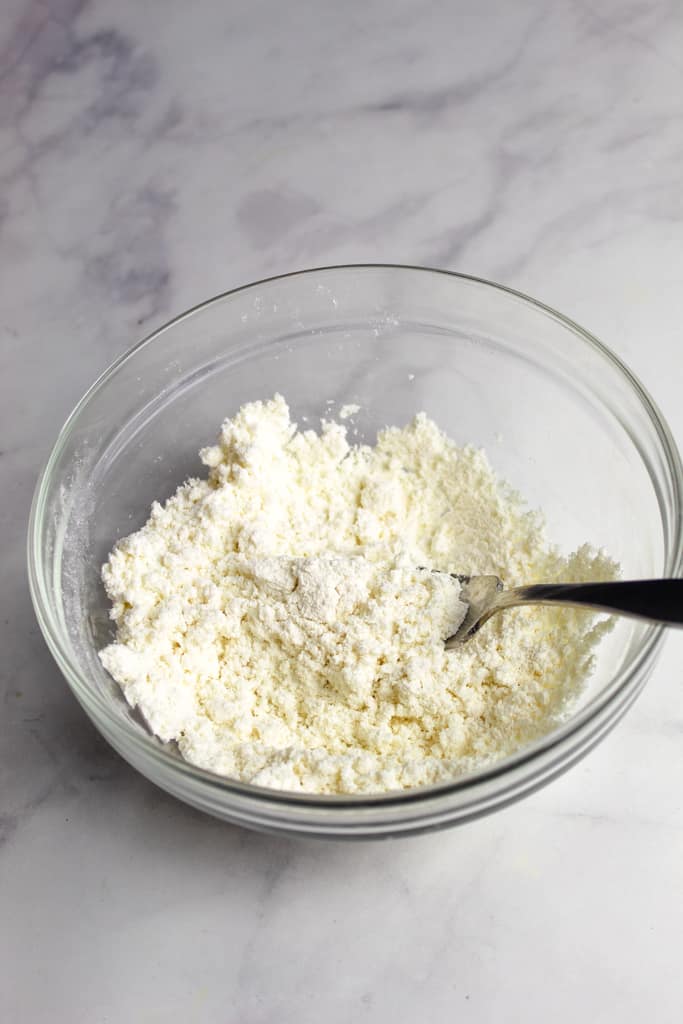
I love coconut flour and have been using this gluten-free flour for over ten years! It has a deliciously light, mild flavor with a subtle sweetness and a lovely coconut scent. It’s great in coconut flour pancakes, pizza crust, zucchini bread, and more. However, it’s quite a unique ingredient! There isn’t really anything else like it.
Table of Contents
Coconut flour is extremely absorbent; you generally use small amounts balanced with a lot of liquid or eggs to add structure to your bakes. This means that replacing coconut flour in a recipe also requires you to adjust the liquid content, which certainly gets tricky!
Coconut Flour Substitutes: Key Takeaways
Coconut flour is unlike any other flour alternative because it is extremely absorbent and very high in fiber. It’s best to replace only part of the coconut flour in a recipe instead of trying to replace it 1:1, and consider adjusting the liquid slightly to compensate for the loss in absorption.
In general, it’s easier to find a recipe suited for the ingredients you have instead of substituting coconut flour with something else, although there are some ingredients that can work in a pinch!
Best Coconut Flour Substitutes
If you love a recipe that uses coconut flour and need to find a replacement, these are the best substitutes to try. Don’t forget to grab your free Gluten Free Flour Substitution Chart to help you make the right swaps every time!
Soy Flour
Soy flour is unique in its own way because it is incredibly high in protein with a fair amount of fiber. It’s also very absorbent, similar to coconut flour, and is a great coconut flour substitute in some ways. You usually need twice as much soy flour as coconut flour, but this can vary. You may need to adjust the liquid ingredients depending on the recipe.
Soy flour comes in different forms and is sometimes stripped of its fat content (defatted). Since coconut flour is so high in fat, there is no need to use the lower-fat version.
Chickpea Flour
Made from ground garbanzo beans, garbanzo or chickpea flour also contains a high amount of protein and a relatively high amount of fiber. If you’ve run out of coconut flour for a recipe and have some chickpea flour on hand, you may be able to get away with using about twice as much chickpea flour as coconut flour. It does have a bean flavor, though, so keep that in mind!
Fava Flour
This uncommon flour alternative is made from dried and ground fava beans, which are very high in protein and fiber. In fact, they have 24.2% fiber, which is the closest to coconut flour (35.7% fiber).
Best of all, fava flour is very absorbent, just like coconut flour. You typically only use 1/4 to 1/2 as much fava flour when replacing 1 cup of traditional wheat flour, which is very similar to baking with coconut flour.
It does have a strong, slightly bitter flavor, which is why it’s normally mixed with the more neutral chickpea flour. Since it is essentially fat-free, it’s best to use in recipes that already contain some sort of eggs, butter, or oil to keep your recipe from becoming too dry.
White Bean Flour
Like coconut and fava flour, white bean flour also has a high fiber content and can absorb a lot of liquid in recipes! It’s known for having a very mild, neutral flavor, which makes it really versatile, too. Since white bean flour is so absorbent and has such a mild flavor, it’s one of the best alternatives for replacing coconut flour in your recipes, but it may be hard to find.
Gluten-Free Flour Blend
Gluten-free flours are made to replicate regular flour in baked goods, so they don’t typically have the same density as coconut flour. You will need quite a bit more gluten-free flour than coconut flour (up to twice as much), and you’d need to adjust the liquid in your recipe as well.
For best results, just replace a small amount of coconut flour with gluten-free flour mix to start.
Oat Flour
Oat flour is one of the most popular flour alternatives for a reason. It’s a great alternative to regular wheat flour, has a very mild, nutty flavor, and can be used in a wide range of recipes. You can even make it at home in your food processor or blender!
You’ll be pleased to know that oat flour can also be used to partially replace coconut flour in your recipes! It has more protein than coconut flour but less than a third of the amount of fiber. This means you’ll usually want to pair it with some sort of binder like xanthan gum or psyllium husk fiber to hold your recipe together and absorb the excess liquid.
Cassava Flour
Like tapioca starch, cassava flour is made by processing the cassava root into flour. It’s very absorbent, which is why it is often used as a thickening agent in recipes. Since coconut flour is also highly absorbent, this is a good thing!
However, most recipes call for significantly more cassava flour than coconut flour, sometimes four times as much. It’s best to replace just a small amount at first.
Psyllium Husk Fiber
If your recipe calls for a small amount of coconut flour, you may be able to substitute psyllium husk fiber. This ingredient absorbs water incredibly well and can add a soft, pliable texture to homemade tortillas and more. However, it should only be used in small quantities.
Ground Flax Seeds
Flaxseeds and psyllium husk fiber are very similar and are both commonly used as binding agents in gluten-free baking. Flax meal is extremely absorbent and is even used as an egg replacement because of this!
If your recipe uses a small amount of coconut flour (1-2 tablespoons) as a binder or to absorb moisture, then you could consider replacing it with some ground flax seeds to help maintain the structure of your bake. They should not be used as flour, though, so just add them in small doses.
Buckwheat Flour
Although buckwheat has the word “wheat” in its name, it’s actually not a grain but a seed from a flower. It has a distinctly nutty, earthy flavor and is popular in soba noodles, gluten-free bread, pancakes, and more.
From a protein perspective, buckwheat flour is nearly identical to coconut flour. However, it has less than half the amount of fiber and a totally different flavor profile. Since it is not nearly as absorbent, you may need to reduce the moisture in your recipe or add a binding agent to avoid a mess.
In this situation, I recommend replacing only part of the coconut flour with buckwheat flour to preserve the structure of your baked goods.
Teff Flour
Teff flour is an ancient grain and is actually the smallest grain on the planet! It acts very similar to buckwheat flour, which means it can also be used in small doses as a coconut flour substitute.
White teff flour is a better alternative for coconut flour than the darker shades as it has a milder flavor.
